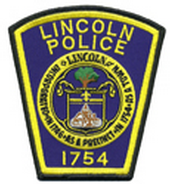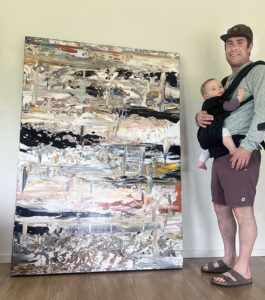New senior property tax exemption program starts
Applications are now being accepted for the Lincoln means-tested Senior Circuit Breaker Property Tax Exemption. This new property tax exemption was recently approved by the state and then again at Annual Town Meeting in March (after the initial 2021 approval) for implementation for the FY25 real estate tax billing cycle.
The new exemption reduces property taxes for income-eligible households and is in addition to any other exemption allowable under Mass General Laws, though the maximum benefit received may not exceed 50% of any resident’s property tax bill. This program coincides with the Massachusetts Circuit Breaker program, with additional criteria specific to Lincoln. The funds available for this program are limited. Thus, program eligibility based on household income may be reduced to ensure those most in need receive a benefit. To be eligible for the new exemption, individuals must:
- Have owned property in Lincoln for at least five years
- Be 65 years of age at the close of 2023. If married, your spouse must be at least 60 years of age at the close of 2023.
- Have completed your 2023 Massachusetts state income taxes, including Schedule CB.
- Have a household gross income of less than 100% of the AMI (area median income) for the household size. For a household of one, this is $104,510; for a household of two, it’s $119,440.
For more information or to apply, call the Council on Aging & Human Services at 781-259-8811. Town staff and board members have been working hard to start the first year of this program off well; please be patient as we navigate this process with you. Applications are due by 4:30 pm on July 1, 2024 and applicants must file annually to retain the exemption.
Eighth-grade car wash on Saturday
 The Lincoln School eighth-graders will host their annual fundraising car wash Saturday, June 8 at the Town Offices from 10 a.m.–2 p.m. (rain date June 9). This is their biggest opportunity to raise funds for a well-deserved graduation celebration and class gift. Purchase your ticket early so we have a sense of the funds available for the expenses. Click here to purchase tickets ($20 per car) and/or make a donation. You can also pay the day of the car wash ($25 cash or check).
The Lincoln School eighth-graders will host their annual fundraising car wash Saturday, June 8 at the Town Offices from 10 a.m.–2 p.m. (rain date June 9). This is their biggest opportunity to raise funds for a well-deserved graduation celebration and class gift. Purchase your ticket early so we have a sense of the funds available for the expenses. Click here to purchase tickets ($20 per car) and/or make a donation. You can also pay the day of the car wash ($25 cash or check).
Summer softball league starting up
Lincoln Co-Ed Softball is a not-too-competitive league with modified rules to enhance player safety while maintaining the integrity of the game for players age 16 and up. We provide players with a rewarding experience with their neighbors where the mandatory thing is stretching before games. We have four veteran teams that would love to have you join — pick one when you register, or we can assign you. No experience necessary, and don’t worry if you can’t make every game. Post-game bragging rights at the Tack Room is optional. Register here. Questions? Email lincolnsoftball01773@gmail.com.
Ongoing trail work with closures at Minuteman
 Ongoing trail improvement projects at Minute Man National Historical Park involve temporary trail closures and parking lot closures to the public at various locations along the Battle Road Trail and North Bridge Trail. The first of these projects will include the Fiske Hill West and East Trail, as well as the portion of Battle Road Trail between the Whittemore House and Parker’s Revenge site. Work also continues at the trail re-route between Olive Stowe Boardwalk and Brooks Village. These locations will be completed by early July.
Ongoing trail improvement projects at Minute Man National Historical Park involve temporary trail closures and parking lot closures to the public at various locations along the Battle Road Trail and North Bridge Trail. The first of these projects will include the Fiske Hill West and East Trail, as well as the portion of Battle Road Trail between the Whittemore House and Parker’s Revenge site. Work also continues at the trail re-route between Olive Stowe Boardwalk and Brooks Village. These locations will be completed by early July.
It’s important that visitors respect the temporary closures. Due to the type of material being applied to trail surfaces, unauthorized trail access can impact the curing process and potentially delay completion of the projects. Updates on trail closures and completion are available on the Minute Man NHP website and social media platforms.
The work to rehabilitate trails and improve the visitor experience is funded by a $27 million grant from the Great American Outdoors Act (GAOA) Legacy Restoration Fund in the lead-up to April 2025, the 250th anniversary of the opening battle of the American Revolution.
LLCT annual meeting is June 23
The Lincoln Land Conservation Trust at our Annual Meeting on Sunday, June 23 at 4 p.m. at the Lincoln School’s learning commons. After LLCT members vote in the business meeting, Mark and Marcia Wilson from Eyes on Owls will lead a program where attendees can meet six live owls up close. This live animal program can be enjoyed by people of all ages (5+ is recommended) and young naturalists will be invited to sit on the floor at the front of the room.
After the owl program, LLCT will host a burrito dinner from the Tack Room in the adjacent dining commons. Burritos will be prepared in advance, so we are asking participants to RSVP so we can plan accordingly. Suggested donation for the burrito dinner is $10/person. Click here to learn more and RSVP.
See high school service day activities in Lincoln
The Lincoln-Sudbury Regional High School SRHS Class of 2024 thanked the communities that have given so much to them over the years by giving back on the annual Senior Day of Service. Click here to watch a slide show of the activities at several Lincoln locations.
Coming up at the library
Book talk: “Suffrage Song”
Monday, June 10 at 7 p.m. (Zoom)
Hear author Caitlin Cass discuss her book, Suffrage Song: The Haunted History of Gender, Race and Voting Rights in the U.S. Part graphic novel, part map of the suffrage movement, this book tells the story of the fight for the right to vote by women from the very beginning. Click here to register.
Summer reading kickoff and sale
Wednesday, June 12 from 3–6 p.m., library lawn
Children are invited to the library for balloon sculpting (balloons for ages 3+), crafts and other fun, ice cream, and a magic show by Ed Popielarczyk at 4 p.m. Learn about the library’s summer reading program and pick up reading challenge forms. The Friends of the Lincoln Library (FOLL) will also be holding a sale of used children’s books for kids ag 5-12 priced from 50 cents to $2.00.
No registration required. The event will move indoors in the event of inclement weather. Funding provided by FOLL.








